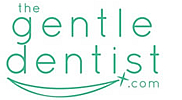Cheek and Tongue Biting | The Gentle Dentists Shelby Township

Understanding Cheek and Tongue Biting
Cheek and tongue biting can be painful, frustrating, and even embarrassing, especially if it occurs frequently. The sudden sting from biting your cheek or tongue can make eating or speaking uncomfortable, and in some cases, can lead to sores that take time to heal. Over time, this repetitive irritation can cause lasting damage to the soft tissues, making it essential to address the root causes and seek treatment. If untreated, it may also affect speech, chewing efficiency, and overall oral health.
Causes of Crossbite and Misalignment
The upper jaw (maxilla) forms from birth until around 15 years of age, influenced by the balance of forces from the cheeks, tongue, and lips. Proper nasal breathing, along with correct swallowing patterns, helps maintain the ideal width and position of the upper and lower teeth. However, prolonged thumb sucking, pacifier use, or mouth breathing can disrupt this balance, leading to a narrower upper jaw and crossbite formation.
Treatment and Prevention
Preventing crossbite starts with addressing behaviors in childhood, such as limiting pacifier use to 2 years and addressing thumb sucking early. Chronic mouth breathing should also be treated to avoid long-term developmental issues with the jaw.
For adults, treatments focus on adjusting or reshaping the teeth to prevent cheek and tongue biting. This may include reshaping the upper teeth or applying crowns to create more space and move the cheek away from the biting surface.
Faith and Health
At The Gentle Dentists, we believe in caring for your body as an act of stewardship, aligning with Proverbs 16:24: “Gracious words are a honeycomb, sweet to the soul and healing to the bones.” Proper oral health and treating conditions like cheek and tongue biting contribute to overall well-being, fulfilling our responsibility to care for the body God has entrusted to us.
Conclusion
If you suffer from frequent cheek or tongue biting, give us a call at (586) 247-3500 to schedule an assessment of your bite. We can determine if adjustments can be made to prevent this irritation and help restore proper oral function.
